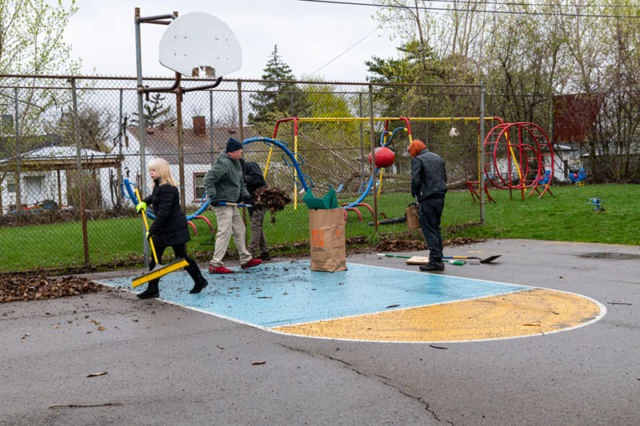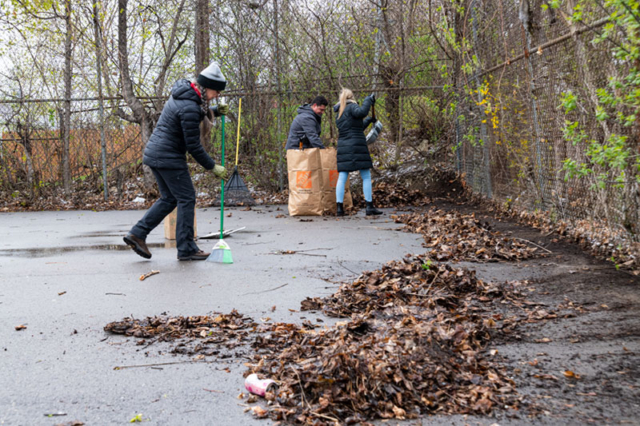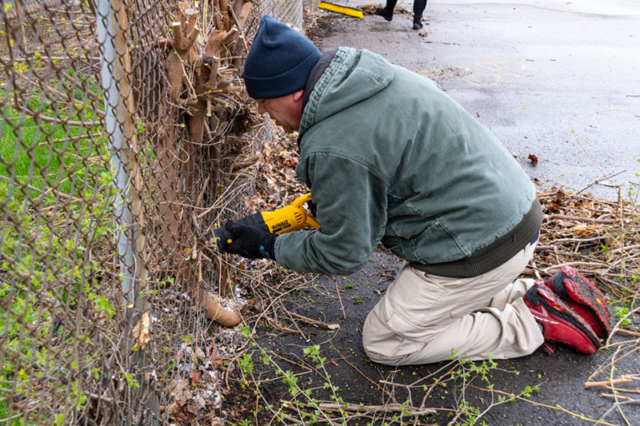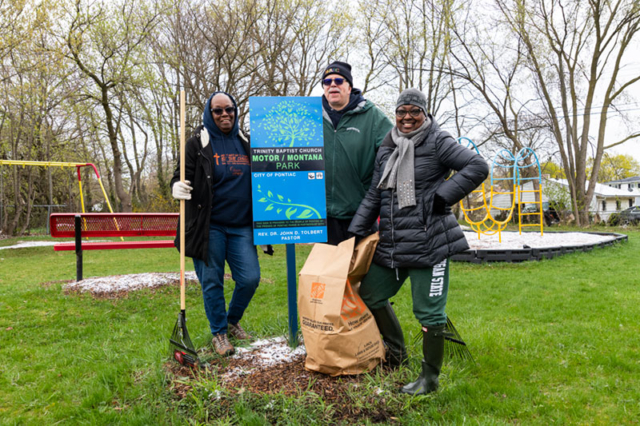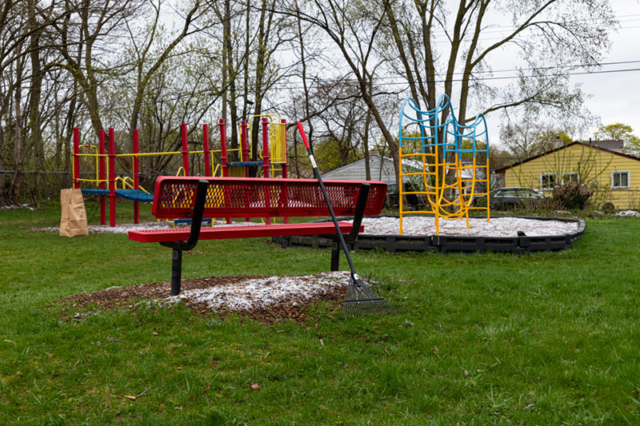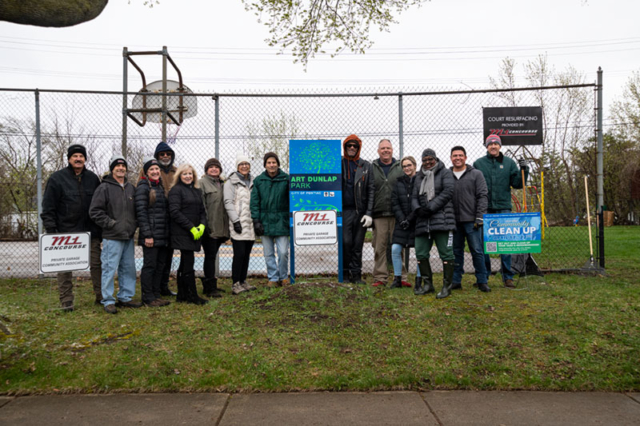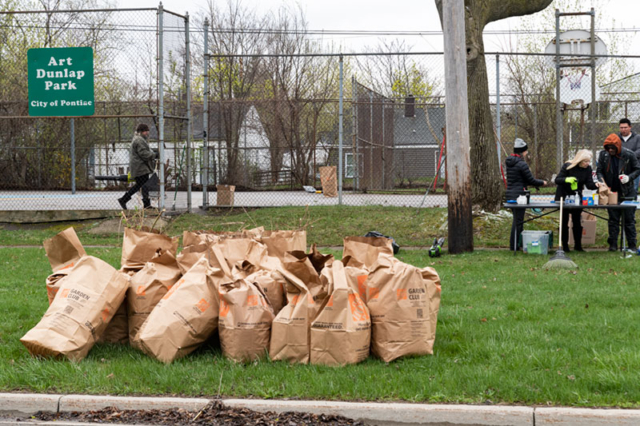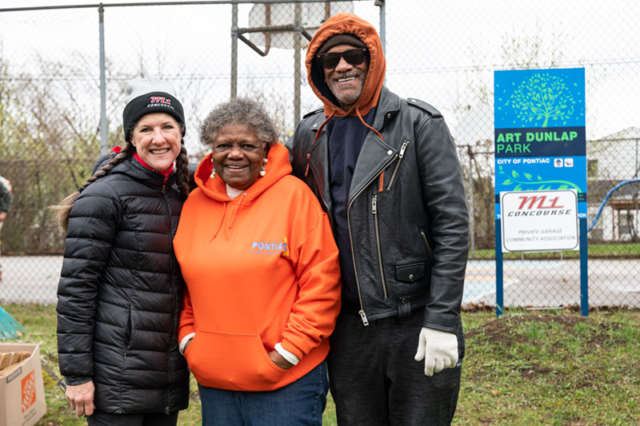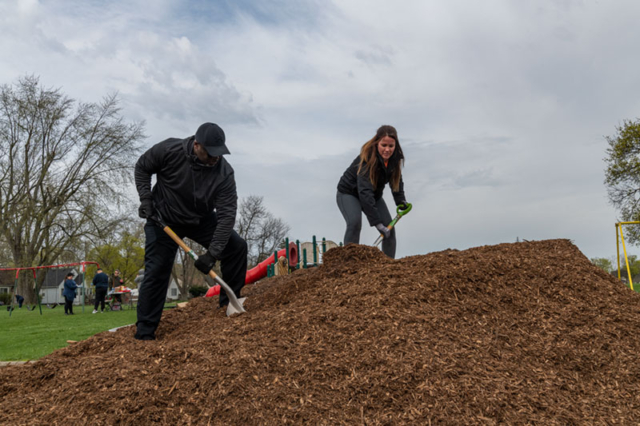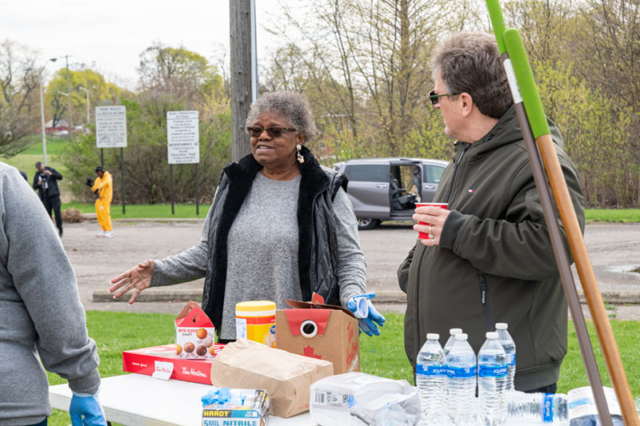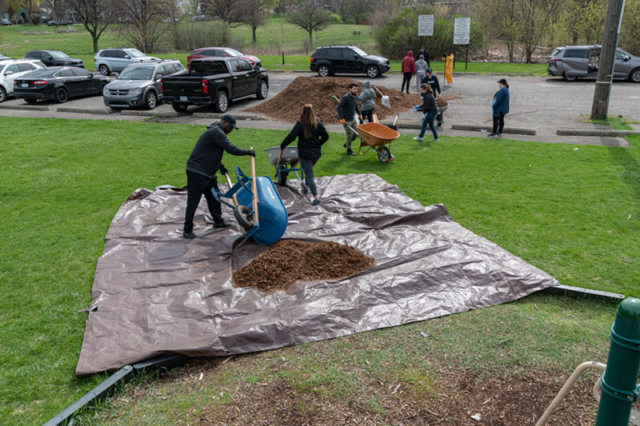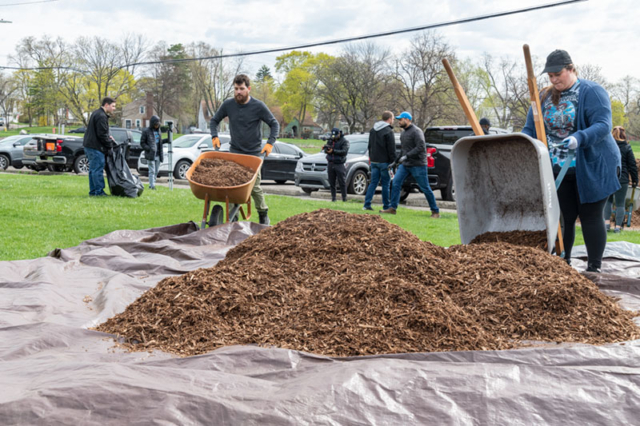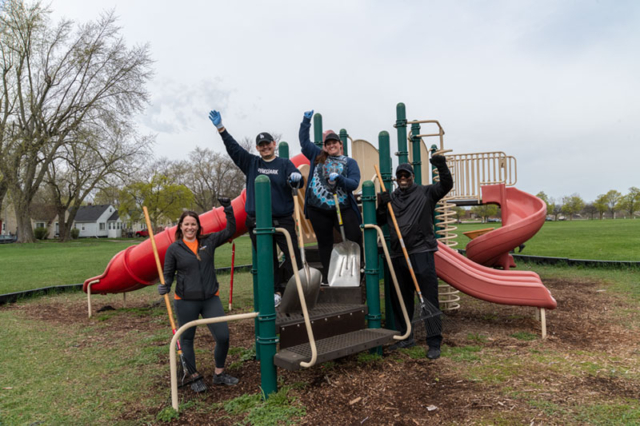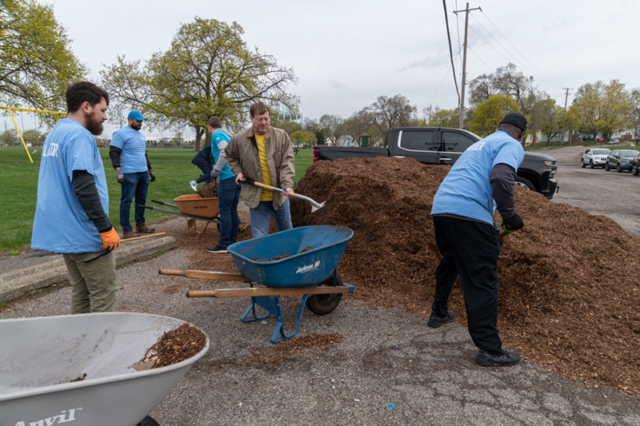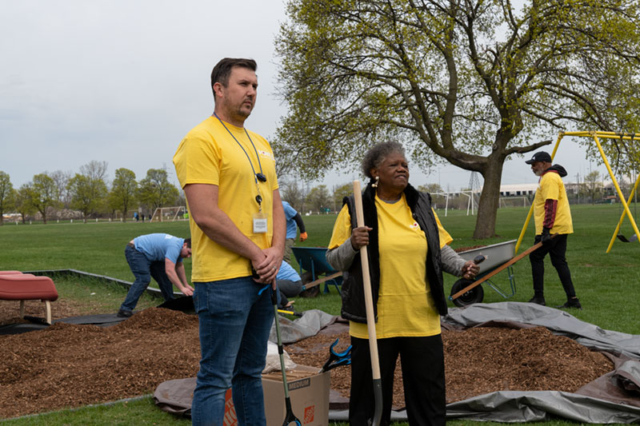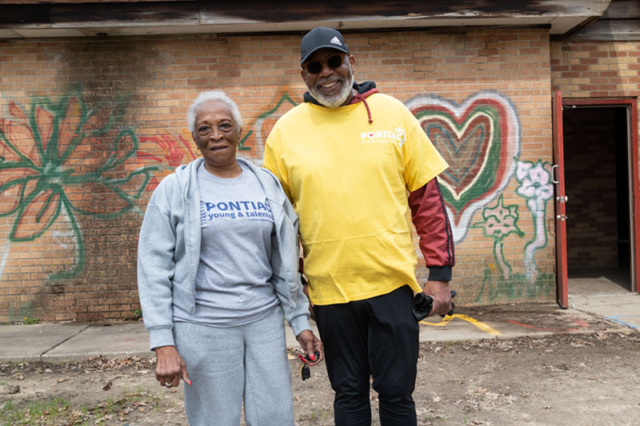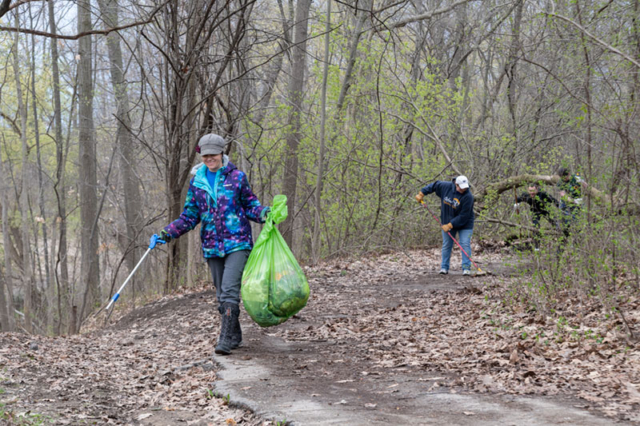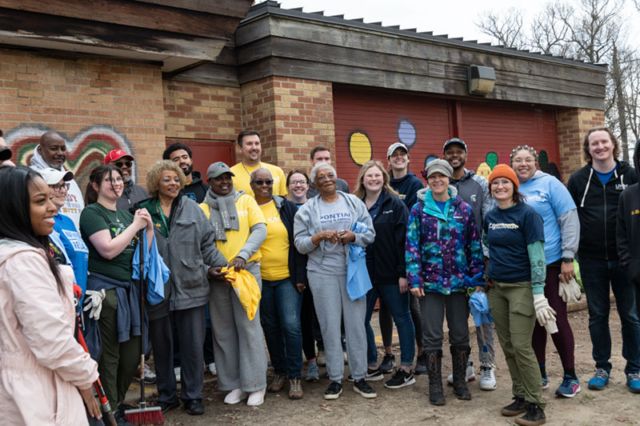Home » Pontiac’s Spring Cleaning Benefits Community Health
Pontiac’s Spring Cleaning Benefits Community Health
Annual Citywide Community Clean-Up improves quality of life overall
During the week of April 17th – April 22nd, community members from around Pontiac joined forces to help beautify our city.
Each day of that week, we focused on different parks, playfields, and neighborhoods as our volunteers helped pick up garbage, cleaned out garages and sheds, planted flowers, and more.
It was our opportunity to prepare Pontiac for a summer filled with good, clean fun in the great outdoors!
We want to thank all of the volunteers who participated, because this annual citywide clean-up isn’t just about making Pontiac look good.
Of course, living in a city that is well cared for can inspire us to engage more in our community, but the benefits of clean open spaces extend beyond civic engagement.
It’s important to note that some urban neighborhoods have the highest mortality rates in the country, which are often—incorrectly—blamed on drug overdoses or gunshot wounds.
In reality, these deaths are largely due to chronic diseases that aren’t caused by viruses, bacteria, or other infections; rather, they can be attributed to an increased likelihood of stroke, diabetes, kidney disease, high blood pressure, and certain types of cancer.
Health disparities, which are significant gaps in health outcomes between different demographic groups, are typically present in communities that experience systemic obstacles which inhibit their ability to create and sustain a high quality of life.
These obstacles may be due to race or ethnicity, socioeconomic status, age, gender, physical or mental disability, geographic location, or other forms of discrimination or exclusion.
Addressing both the systemic obstacles and the disparities they create requires a perspective rooted in health equity, which is an approach that focuses on the “attainment of the highest level of health for all people.”
Decades of research and a growing body of evidence suggests that access to clean and safe parks and green spaces may alleviate the health disparities that we observe in vulnerable populations.
For example, studies have shown that access to urban parks is associated with a lower risk of obesity, cardiovascular disease, diminished mental health, and other health-related concerns.
Unfortunately, marginalized areas often lack access to quality parks, which can negatively impact public health and well-being—particularly in communities that already face numerous challenges to success.
Clean, open, accessible, and maintained parks and green spaces must be part of any public health and wellness solutions that we explore as a community.
So let’s be more thoughtful about the role that our public spaces can play in the development of a vibrant and healthy Pontiac!
We look forward to seeing you out in our beautiful public parks this summer, and can’t wait to do spring cleaning together, again, next year.





